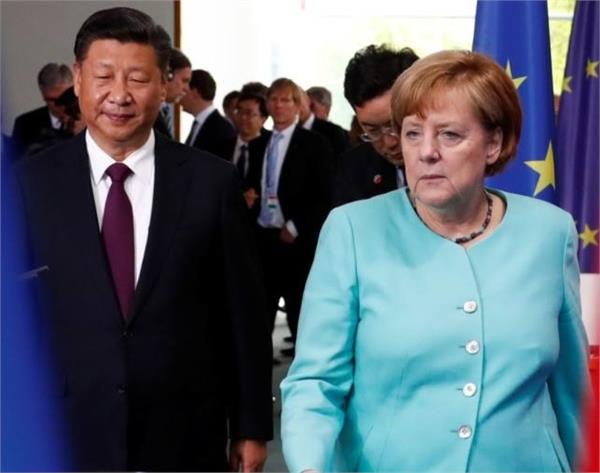Germany break ranks with China, shifts to adopting India-Pacific strategy

Advertisement
In a move which shocked China, Germany has decided to focus on maintaining stronger partnerships with democratic countries in the India-Pacific region in order to promote the rule of law.
Berlin’s drift towards the India-Pacific strategy comes as Europe has expressed concerns over China’s track record on human rights and its economic dependence on the Asian country.
“We want to help shape (the future global order) so that it is based on rules and international cooperation, not on the law of the strong. That is why we have intensified cooperation with those countries that share our democratic and liberal values,” German foreign minister Heiko Maas said.
Germany adopted the new guidelines pertaining to the India-Pacific approach, stressing the importance of promoting the rule of law and open markets in the region.
The India-Pacific strategy has been endorsed by other countries including India, Japan, Australia and ASEAN members.
China had been Germany’s diplomatic focal point in Asia, with German Chancellor Angela Merkel visiting the country almost every year. It also must be noted that China also accounts for 50 per cent of Germany’s trade with the India-Pacific region.
However, as per expectations, economic growth has not opened the Chinese market. German companies operating in China have been forced to hand over technology by the Chinese government.
Also, talks between the European Union (EU) and China regarding an investment treaty to resolve such issues have stalled, giving rise to concerns about Berlin’s increasing economic dependence on Beijing.
This came amid growing criticism of China’s national security law in Hong Kong and its concentration camps for the Uyghur Muslims in Xinjiang, which has fueled increasing resistance to Merkel’s pro-China policies.
Germany’s new India-Pacific approach takes a tough stand on China, including criticism of the huge debt burden of countries participating in Beijing’s Belt and Road initiative (BRI).
Europe is appearing to re-evaluate its diplomatic relations with China. Last year, the EU termed China a “strategic competitor”, focusing its trade and technological rivalry with Beijing.
“A shift toward a more sober strategy on Beijing has occurred,” said Patrick Koellner, at the German Institute for Global and Area Studies.
Germany now plans to work with France regarding EU-wide strategy on India-Pacific. Berlin will be looking to strengthen its influence on this issue by having the bloc on its side.
Advertisement






